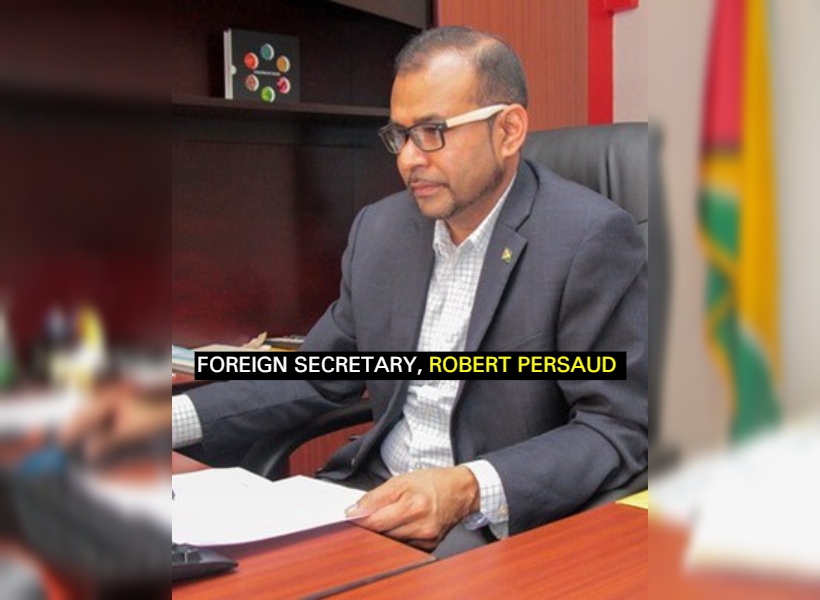By Sueann Wickham
As Guyana stands on the cusp of significant economic development fuelled by its oil resources, a pressing issue threatens to hinder its progress: a pervasive skills gap. This challenge which spans across various sectors has the potential to impede the nation’s journey to transformative growth unless decisive action is taken.
Last week, Guyana Standard highlighted the pressing issue of brain drain that has been affecting Guyana for many years and noted that skills gap has also been a result of the significant crisis. Through the emigration of highly skilled and educated individuals from one country to another, Guyana has faced a shortage of skilled professionals in key sectors such as healthcare, education, and technology. In this week’s article, we aim to address the skills gap issue and highlight government approaches to remedy the situation.
The skills gap issue is a multifaceted challenge that affects the employability and overall prosperity of Guyanese citizens. It refers to the mismatch between the skills job seekers possess and the skills demanded by employers. Despite its natural beauty and recently acquired oil and gas resources, Guyana is still struggling with brain drain and filling skills gaps.
Taking a deeper look within, apart from brain drain, one of the primary contributors to the skills gap is the state of education in Guyana. While the nation has made significant strides in improving literacy rates, the quality of education remains a concern. In 2021, approximately 25% of the adult population had not completed primary education, according to UNESCO statistics. This lack of foundational education hinders individuals’ ability to acquire more advanced skills.
The digital divide is another facet of the skills gap. With the world becoming increasingly digital, individuals without digital literacy find themselves at a disadvantage. In 2021, only 17% of the Guyanese population had internet access, according to the International Telecommunication Union. This lack of connectivity limits access to online education and remote job opportunities.
Beyond technical skills, soft skills are essential for success in the workplace. Effective communication, problem-solving, and teamwork are attributes sought after by employers globally. However, there is a recognized shortage of these skills among Guyana’s workforce, which affects job performance and employability.
Recognizing the urgency of addressing the skills gap, Guyana has begun taking steps to bridge it:
- Education Reforms: The government has committed to improving the quality of education, making it more accessible and relevant to the job market’s demands.
- Vocational Training Centers: Efforts are underway to establish vocational training centres, providing practical skills and enhancing employability.
- Digital Literacy Initiatives: Programmes aimed at enhancing digital literacy are being implemented to close the digital divide
- Soft Skills Development: Workshops and training programmes are being offered to improve soft skills among job seekers.
This publication also spoke with Guyana’s Foreign Secretary, Robert Persaud who informed us that the government is currently making efforts to attract the Guyanese diaspora to come back home and fill some of the existing skills gaps.
He said, “We have a multi-stakeholder approach whereby we are talking to both private sector and public sector agencies as well as companies that their businesses are skills recruitment to have an assessment of the needs.” He added, “Where are those needs? What are the opportunities?”
Persaud further noted that the government has been interacting with smaller groups and even members of the diaspora to make them aware of what those opportunities are.
“So the first step is to understand the needs, to convey that information utilizing both traditional and non-traditional mechanisms. And the third step is to see how it is that we can link companies and prospective employees with members of the diaspora who are interested in returning and satisfying the skills gap in the country.”
Moreover, he added that the government has been engaging with the United Nations International Organization for Migration in terms of Guyana’s technical capacity and has had discussions with a number of other partners in countries looking at their experiences and how it is that they’ve been able to tap into addressing the developmental needs of the country, both in terms of human as well as capital.
The Road Ahead
Guyana’s journey toward addressing the skills gap is a crucial step in securing a prosperous future for the nation. Investment in education, vocational training, and soft skills development is vital. As the nation continues to explore its economic potential, ensuring that its workforce is equipped with the necessary skills is not just a choice but a necessity. It’s a collective responsibility to create an environment where every Guyanese citizen can thrive, bridging the gap, and embracing the opportunities of the future.
The skills gap is indeed a challenge that Guyana cannot afford to ignore. By addressing this issue head-on through comprehensive reforms and targeted initiatives, Guyana can surely pave the way for a brighter and more prosperous future for all its citizens.













